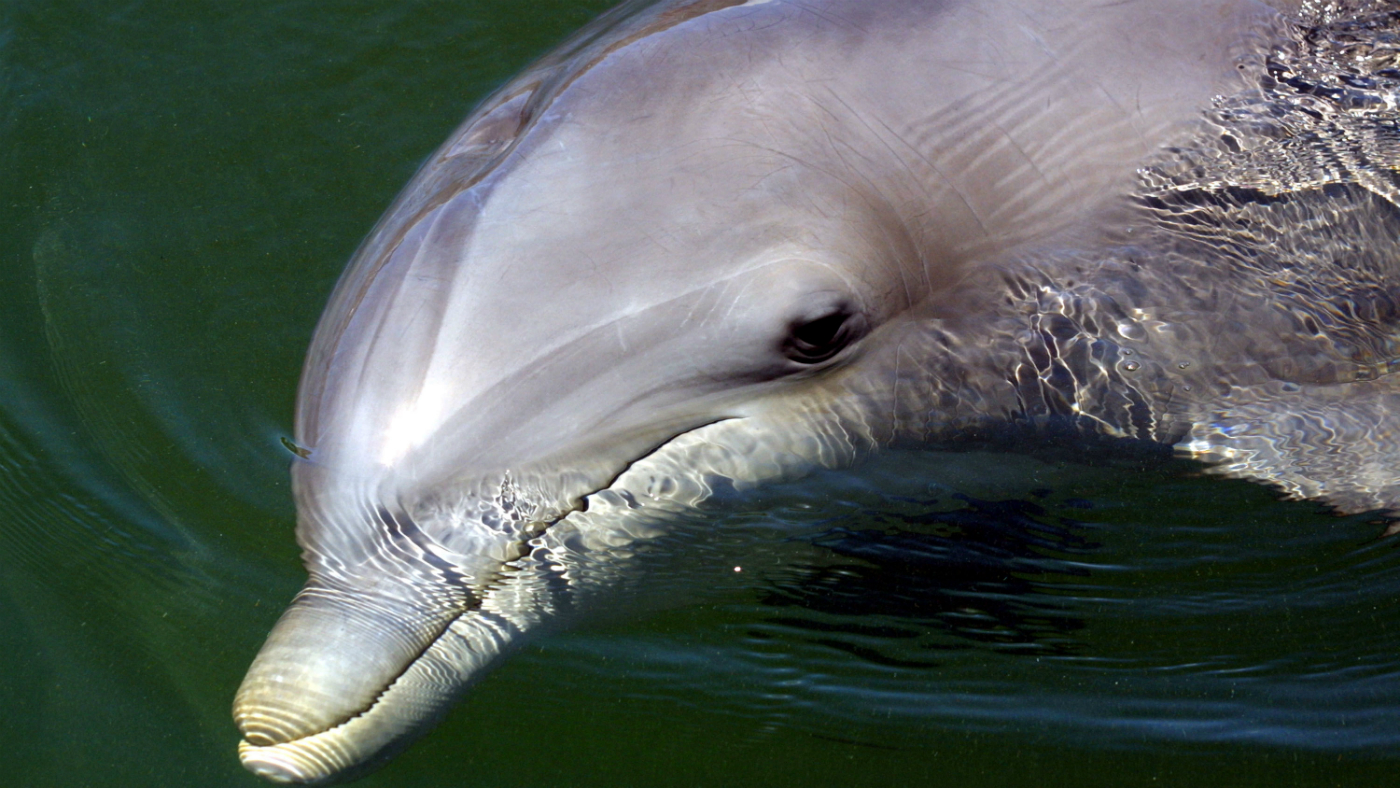Why New Zealand has banned swimming with bottlenose dolphins
Marine mammals are being loved into extinction by affectionate tourists

A free daily email with the biggest news stories of the day – and the best features from TheWeek.com
You are now subscribed
Your newsletter sign-up was successful
New Zealand has banned tourists from swimming with bottlenose dolphins in an effort to protect the species.
Research carried out by the country’s Department of Conservation (DOC) indicated that human visitors were “loving the dolphins too much” and human interaction was “having a significant impact on the population’s resting and feeding behaviour”.
The number of dolphins frequently visiting New Zealand’s Bay of Islands has dropped by 66% since 1999, and only 19 dolphins now return regularly.
The Week
Escape your echo chamber. Get the facts behind the news, plus analysis from multiple perspectives.

Sign up for The Week's Free Newsletters
From our morning news briefing to a weekly Good News Newsletter, get the best of The Week delivered directly to your inbox.
From our morning news briefing to a weekly Good News Newsletter, get the best of The Week delivered directly to your inbox.
In 2016 a Massey University report found the Bay of Island’s bottlenose dolphins were “being loved into extinction” because of so much human interaction.
The new rules ban swimming with dolphins, and also place restrictions on licensed tour operators taking people and boats out on to the water, reports the BBC.
Tour operators are restricted to approaching bottlenose dolphins only in the morning or the afternoon to give the marine mammals a break, says Stuff NZ.
“It’s very difficult to manage a group of wild animals swimming freely,” said Sue Reed-Thomas, DOC North Island director of operations, following the 2016 study. “The dolphins often swim towards boats themselves and you simply can’t put a barrier around them or monitor every interaction they have.
A free daily email with the biggest news stories of the day – and the best features from TheWeek.com
“Everyone who puts a boat on the water in the Bay of Islands needs to be aware of the problem so they play their part in protecting the local dolphin population.”
Will other countries follow suit?
Hawaii is close to following New Zealand’s lead and placing a ban on swimming with dolphins, reports Bloomberg. Federal officials are in the final stages of banning swimming with Hawaiian spinner dolphins.
Costa Rican authorities outlawed swimming with dolphins in 2005 over concerns for the animals’ well-being, reported The Telegraph at the time.
And in 2018, Mexico City officially banned dolphinariums, in the wake of bans introduced by Chile, Costa Rica, and Croatia.
Animal tourism has been a popular pursuit for holidaymakers worldwide, but it is now becoming a contentious topic as more emphasis is placed on conservation and animal welfare.
This year Metro reported that a group of elephants forced to offer rides at Cambodia’s Angkor Wat temple will be retired and transferred to a conservation centre in 2020.
-
 Quentin Deranque: a student’s death energizes the French far right
Quentin Deranque: a student’s death energizes the French far rightIN THE SPOTLIGHT Reactions to the violent killing of an ultra-conservative activist offer a glimpse at the culture wars roiling France ahead of next year’s elections.
-
 Secured vs. unsecured loans: how do they differ and which is better?
Secured vs. unsecured loans: how do they differ and which is better?the explainer They are distinguished by the level of risk and the inclusion of collateral
-
 ‘States that set ambitious climate targets are already feeling the tension’
‘States that set ambitious climate targets are already feeling the tension’Instant Opinion Opinion, comment and editorials of the day
-
 Epstein files topple law CEO, roil UK government
Epstein files topple law CEO, roil UK governmentSpeed Read Peter Mandelson, Britain’s former ambassador to the US, is caught up in the scandal
-
 Iran and US prepare to meet after skirmishes
Iran and US prepare to meet after skirmishesSpeed Read The incident comes amid heightened tensions in the Middle East
-
 Israel retrieves final hostage’s body from Gaza
Israel retrieves final hostage’s body from GazaSpeed Read The 24-year-old police officer was killed during the initial Hamas attack
-
 China’s Xi targets top general in growing purge
China’s Xi targets top general in growing purgeSpeed Read Zhang Youxia is being investigated over ‘grave violations’ of the law
-
 Panama and Canada are negotiating over a crucial copper mine
Panama and Canada are negotiating over a crucial copper mineIn the Spotlight Panama is set to make a final decision on the mine this summer
-
 Why Greenland’s natural resources are nearly impossible to mine
Why Greenland’s natural resources are nearly impossible to mineThe Explainer The country’s natural landscape makes the task extremely difficult
-
 Iran cuts internet as protests escalate
Iran cuts internet as protests escalateSpeed Reada Government buildings across the country have been set on fire
-
 US nabs ‘shadow’ tanker claimed by Russia
US nabs ‘shadow’ tanker claimed by RussiaSpeed Read The ship was one of two vessels seized by the US military